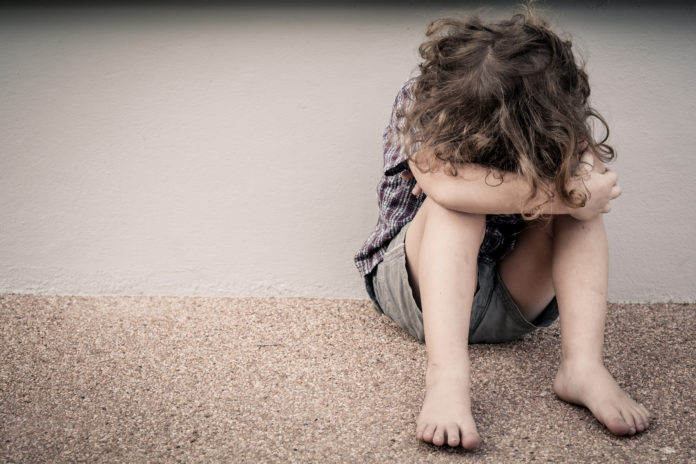A new report has highlighted the huge amount of children of Muslim background in the care sector, many of whom suffer from mental health issues, racism, Islamophobia, estrangement from their family, culture and faith, and a sense of isolation and shame.
The report by My Family Group says there are approximately 5,000 “Muslim-heritage” children (kids who have at least one Muslim parent) in the care sector, including unaccompanied asylum-seeking children (a staggering 75-95% of whom it is estimated come from a Muslim background) who have faced unimaginable trauma.
These children have been abandoned by their parents or have been taken away for their safety, and there was no one in their extended family to take them.
The charity’s Annual Roundtable Report explores the current situation of Muslim-heritage children in care by bringing together insights and recommendations of key experts, many of whom have lived experience of the care sector as Muslims.
My Family Group have also launched a campaign “Change a Life” to support these children.
Overwhelmingly from ethnic minority backgrounds, Muslim children are over-represented in the care sector: 24% of children in care come from ethnic minority communities, compared to 13% of the population.
They are also, therefore, likely to wait longer to be placed. This is especially worrying for black children who wait twice as long for placements.
Subscribe to our newsletter and stay updated on the latest news and updates from around the Muslim world!
My Family Group says the plight of Muslim-heritage children in care is under-recognised because the care sector has no uniform systems to capture faith data, therefore it is not consistently a consideration in the placing of Muslim children.
This issue is compounded by a lack of consistent faith and cultural competency training across the sector.
Case study
Susan, a Muslim foster carer who has cared for over 100 children, recounts an experience prior to her conversion, during her time caring for unaccompanied asylum-seeking Muslim boys.
During the school holidays she was keen to take the children to the fair one Friday. The boys’ resistance to this outing – on account of them not wanting to miss their Friday Jummah prayers – surprised her. At the time Susan suggested they should do their communal prayer on a Sunday instead and described their glum faces during that Friday trip to the fair.
Following this early experience caring for Muslim heritage children, Susan learned of the importance of Friday prayer to Muslim children both culturally and spiritually. Susan said she wishes she had had the cultural and faith sensitivity training to have learned this and many other things prior to her conversion.
Asked what her concerns are for Muslim heritage children in care who aren’t given the same opportunity of faith matched placement, she said things like being able to learn how to pray when they approach puberty and other practices that may otherwise connect them to their faith.
Recommendations
The report makes recommendations for the Muslim community, the care sector, and national organisations to come together and bridge the gaps in care for Muslim-heritage children.
- Anti-racism, cultural competency, and faith-sensitive training to be implemented across the care sector
- Uniform systems to capture faith data across the care sector
- Better faith-sensitive support for carers of Muslim-heritage children in care
- More joined-up, collaborative and strategic working between the care-sector and Muslim organisations
- Commitment to support the mental health of Muslim-heritage children in care
- For mosques to lead and sustain scholarly-informed conversations regarding the Muslim community’s role in supporting Muslim-heritage children in care, to increase the uptake and raise the profile of fostering and adoption within the Muslim community
- For the Muslim community to help to drive change on a local level by working directly with Muslim-heritage children in care and their carers to provide faith and culturally sensitive support
My Family Group said: “Faith background is an important part of a child’s evolving identity – children’s healthy development depends on a safe and secure sense of identity. Furthermore, cultural and religious practices offer comfort, grounding and reassurance for children in care at a time when it is most necessary. For these reasons, faith needs to be part of the conversation when addressing the crucial needs of children in care.
“As it stands, the care system in the UK does not uniformly acknowledge, account for, nor capture faith considerations of the children that enter it. For Muslim-heritage children, for whom faith will make up a key part of their evolving identity, this has a detrimental impact on their development. In research undertaken by BCBN, 80% of young Muslims experiencing mental-health struggles said faith played a positive role in supporting their mental wellbeing.
“Children of Muslim-heritage also face additional complications with their mental health. As well as significant and complex mental health needs, they are also dealing with racism, anti-Muslim sentiment, estrangement from their family culture and faith due to adverse experiences at home and a sense of isolation and shame. Coupled with the mental pressures we know result from poverty and structural disadvantage – an estimated 50% of Muslim households in the UK are living in poverty and deprivation compared to 18% of the general UK population – and it paints a very worrying backdrop against which Muslim-heritage looked after children are inevitably struggling.”
You can read the MY Family Group report here.



















